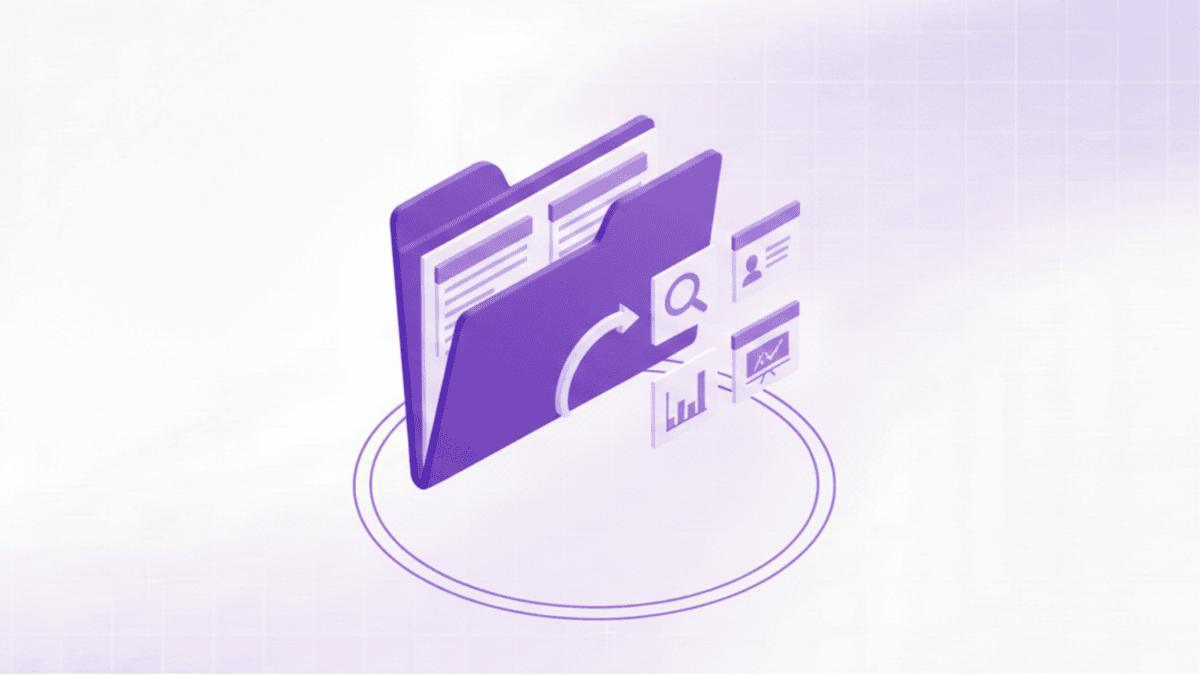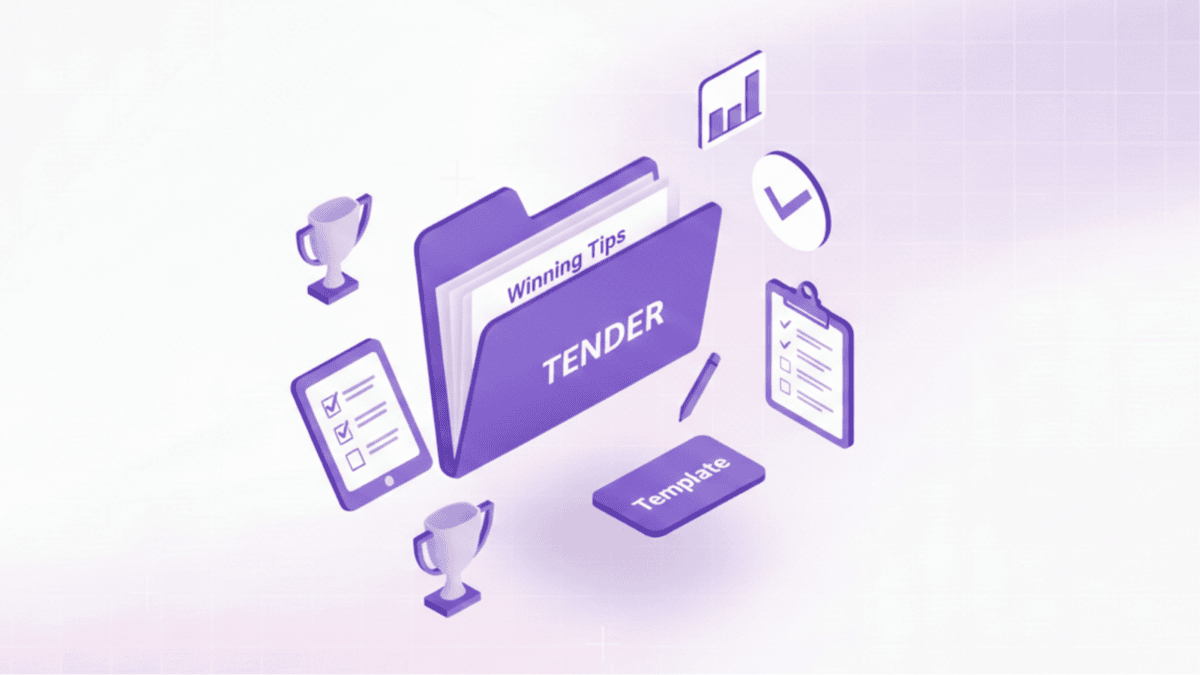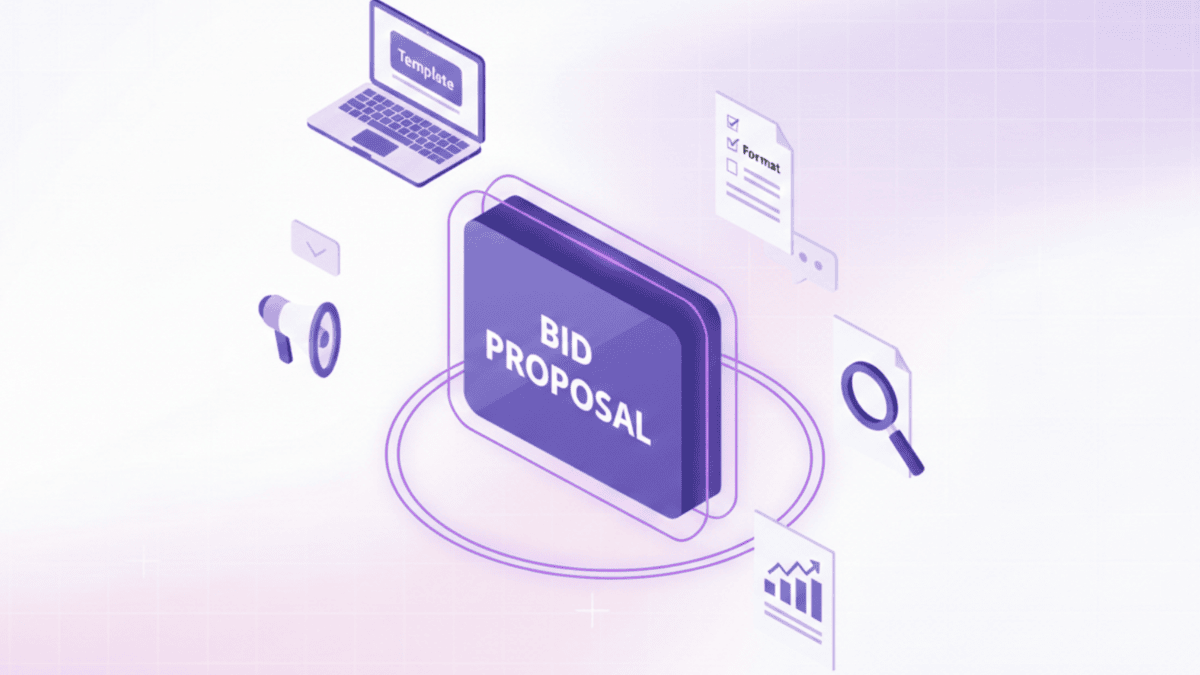Sales enablement isn't what it used to be, and that's a good thing.
For years, sales teams have struggled with clunky processes, scattered content, and tools that added more complexity than clarity. In fact, underused or unused marketing content costs enterprises approximately $2.3 million annually in missed opportunities.
But now, thanks to advances in artificial intelligence sales enablement, we're entering a new era. The future of sales enablement is being reshaped, powered by AI-driven automation, smart recommendations, and real-time insights that actually make selling easier.
In this blog, we'll explore how to use AI in sales and how AI and sales enablement are coming together to redefine how B2B sales teams operate, close deals, and scale revenue. Whether you're a revenue leader, sales ops pro, or AE on the frontlines, the shift towards using AI in sales is impossible to ignore, and full of opportunity.
From clunky to clever: A shift in how sales teams work
Traditionally, sales enablement meant training sessions, long PDF decks, and dusty digital folders full of messaging that nobody used. If reps could even find the right collateral in time, that was considered a win.
Fast forward to today’s sales enablement news, and AI sales enablement is turning that chaos into clarity and becoming an integral part of AI sales strategy. Research says that GenAI could open up an incremental $0.8 trillion to $1.2 trillion in productivity across sales and marketing.
Imagine landing on your Slack and getting a tailored recommendation on what pitch deck to use, based on your prospect's industry and stage in the funnel. Or having your follow-up email drafted with perfect personalization, before you even ask. That's, in fact, not the future of sales enablement; its current sales enablement trends, thanks to GenAI and smarter tooling.
A modern AI sales enablement platform like SiftHub even goes a step further, offering auto-fill capabilities for RFPs and DDQs, auto-generating responses based on pre-approved language, and reducing manual effort by over 80% and boosting sales productivity. In fact, sales teams have reported saving 14+ hours per project simply through automated tasks. Sales enablement tools also unlock data driven sales enablement, providing teams with metrics on what content is being used, where the content gaps are, etc.
And it's not just about post-call follow-ups anymore; AI for sales teams is helping reps prepare before the meeting even starts. With GenAI-powered prep tools, reps now walk into meetings with a full briefing: stakeholder bios, past email exchanges, likely objections, win themes from similar deals, and even recommended talking points. It's like having a dedicated sales analyst working in the background.
Why AI and sales enablement make the perfect match
Let's break this down. AI is great at pattern recognition, automation, and personalization, three areas where traditional sales enablement has struggled. It can also help with identifying coaching opportunities.
With AI in sales enablement, teams can now:
Personalize outreach at scale
AI can analyze buyer behavior and generate content that's customized to each lead. Whether it's a one-pager or a proposal, personalization becomes scalable.
Serve up the right content at the right time
No more digging through folders. Sales enablement AI tools can provide content recommendations on the perfect asset based on deal stage, industry, persona, and even past win/loss data. Research indicates that a fifth of current sales-team functions could be automated with generative AI, especially those related to content management and outreach.
Provide personalized training and onboarding
AI-powered coaching can now be based on call transcripts, AI-driven sentiment analysis, and AI-driven feedback loops, making reps more effective, faster.
Predict deal outcomes and risk
AI-powered sales enablement platforms can highlight at-risk deals, suggest next-best actions, and even provide sales forecasting insights on revenue more accurately.
Some AI tools now act almost like sales engineers themselves, offering unified semantic search, deal-specific Q&A responses, and Slack-based bots that answer complex questions within seconds. These features unlock true knowledge visibility across the team.
And the benefits don't stop at search or surfacing. GenAI can now listen in on live sales calls, flag objection patterns, and auto-summarize next steps the moment a Zoom ends. Some platforms even generate suggested follow-ups based on what was discussed, enhancing conversation intelligence.
What the future of sales enablement looks like
Let's take a peek into the near future. Sales enablement won't just be a support function. It'll be a strategic advantage, deeply integrated with your revenue engine.
In this future, machine learning sales enablement and AI will be inseparable. As this relationship deepens, businesses will reimagine how sales enablement and machine learning work together to create a seamless, proactive selling experience. We'll see:
- Agentic workspaces: Sales reps won't have to switch between tools. Everything, right from outreach to note-taking, will be embedded in one AI-powered flow.
- Voice-enabled interactions: Reps could soon brief an AI assistant verbally, "Tell me the top concerns for CFOs in logistics," and get instant answers with recommended slides.
- Hyper-personalized buying journeys: AI will guide reps to craft tailored journeys for every stakeholder, based on past behavior and preferences.
Sales coaching is another big unlock. Instead of waiting for quarterly reviews, reps can now get AI-generated feedback on their pitch delivery, objection handling, and even talk ratios, right after the call. Enablement leaders can then tailor coaching programs based on actual deal behaviors, not gut feel.
Meanwhile, content overload, a longstanding sales enablement problem, is giving way to content orchestration. Rather than just dumping everything into a drive or library, AI now surfaces the right asset at the right time, based on email threads, deal progression, or prospect signals.
The future of sales enablement is no longer about more content or more tools. It's about better context, faster decisions, and less friction, all driven by AI-powered analytics and AI-driven strategies.
Challenges still exist, but they're shrinking
Of course, integrating AI into your sales enablement stack doesn't happen overnight. There are real concerns:
- Data quality: AI is only as good as the data it learns from.
- Change management: Reps need to trust the AI and not see it as a threat.
- Integration hurdles: Your AI enablement tools need to talk to your CRM, content repository, and more
But these are solvable problems. With the right implementation strategy, companies can overcome the early bumps and unlock massive value through sales enablement and AI working in tandem.
Redefining the sales stack with AI
The future of sales enablement is bright, and AI is the fuel propelling it forward.
As sales cycles get more complex and buyer expectations continue to rise, the ability to personalize, automate, and optimize your sales processes isn't just a nice-to-have. It's table stakes. Sales enablement AI doesn't just help teams "do more"; it helps them "do better", faster, smarter, and more effectively.
In McKinsey's 2024 B2B Pulse Survey, 21% of commercial leaders report full enterprise-wide adoption of generative AI in B2B sales, while another 22% are piloting specific use cases. However, 85% of those who have deployed GenAI are "very excited" about its impact, citing improved efficiency, growth, and customer experience as top benefits.
If a tool can save your team 24 hours per security questionnaire, or win deals 15% faster just by helping reps respond better and faster, why wait?
If you're not already exploring how AI and sales enablement can work together in your organization, now's the time. The winners in this next era won't just be great sellers; they'll be AI-powered problem solvers, leveraging everything from predictive analytics and lead scoring to AI-powered chatbots and AI-driven personalization.
As we move forward, expect to see more AI integration in popular platforms like Salesforce, with sales AI features becoming increasingly common. This AI adoption will drive data-driven insights, boost sales performance, and significantly enhance sales efficiency and productivity.
The convergence of AI and sales enablement is creating a new paradigm of AI-guided selling, where real-time feedback, AI-powered content curation, and AI-assisted account planning become the norm. By embracing these AI-driven sales engagement tools and techniques, sales teams can stay ahead of the curve and deliver exceptional results in an increasingly competitive landscape.










